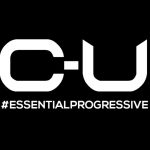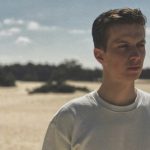We catch up with the up and coming Stevie R who reveals the inspiration behind his latest release.
How old are you, where are you living and how long have you been producing and Djing?
Stevie R: Hi guys, thank you for having me. I am 28 years old and currently residing in London. I’ve been producing and djing for a bit more than ten years.
Where do your musical roots lie, what are your first memories of electronic music and when did you know you wanted to pursue it seriously?
Stevie R: I have to say that my father has been the biggest influence to my musical development. From an early age he introduced me to progressive rock, funk, jazz and soul records, and also pushed me to have guitar lessons. As a teenager I was playing in various bands and I had no interest outside progressive rock and jazz. I think it was a documentary I saw about Pink Floyd that drew my attention to electronic music. The way they were using these weird machines with all those cables and the drones and tones you could get out of them really blew my mind. I got my hands on some gear soon after that and the rest is history.
It was in 2012 when I decided that this is what I want to do with my life. I had just finished uni (I studied Electronic Engineering and Signal Processing) and had to make a choice. Since my mind was set that I was moving to London from Athens, it was either a master degree on what I studied or a sound engineering degree. I chose the latter and since then it has been my full time job.
How difficult was learning to produce for you in the beginning? Did you take any Audio Engineering programs or production courses to help you out or are you pretty much self taught? And did anyone give any advice early on that really helped?
Stevie R: I made my first steps at a friends studio back in the day watching him work and asking a million questions. I got my hands on a copy of Cubase soon after that; went to monk mode for sometime reading anything that I thought could help me and training for countless hours; it was not easy in the beginning. After some years of producing being self taught, I got one of my tracks picked up by HBO for their series “Girls”; that was really exciting for me back then and it was a turning point for me; I decided to get some proper training on production. That led me to Point Blank Music School after I finished uni, which I have to say it was a great experience for both the knowledge and the fact that I got to hang out with so many people that shared the same passion with me.
At the present time I have taught myself and given lectures in various colleges on music production and sound engineering. I am still a huge nerd, constantly reading and attending seminars trying to expand my horizons. The more you learn about music, the more you understand that your knowledge is insignificant and there is an ocean of possibilities; but this is only charming to me.
Best advice that I ever got: Practice makes perfect, but music industry takes much more than being perfect. It’s more about how many times you can fall down and stand back up.
What parts of the production process do you find the most difficult and what comes easiest for you? When you do hit a creative block what helps you through it?
Stevie R: I am always struggling to make a functional track (laughs) Coming from a musicians background I am always thinking more of the composition as a piece of music and not as a dancefloor friendly piece. Trying to change that recently! When I hit creative block I am going back making sounds for the sample packs I design (I work with Sample Magic, Samplephonics, Cr2 Records, Audentity, Black Octopus and more). This usually gets my mind off the track and by creating new sounds I get re-inspired. If that does not work either I go for a long walk.
You have a new EP out now on Parallel; two progressive minded productions that have already earned their fair share of praise. Tell us how you approached writing the tracks, how the relationship with Parallel began and what’s coming later this year from you?
Stevie R: Penelope is a vey special EP for me, and this is why I gave it the name of my mother. It is a combination of field recordings and me fiddling with my analog gear recording for some time and then editing. Kick drum and main bass line on Penelope is actually coming from me recording my footsteps (laughs).
The relationship with Parallel started when their owner and now a friend of mine Sergio Pellon approached me for an EP. I think he did like my previous works and wanted something for his imprint. Since then we have been working on many things together.
Lots of exciting new things coming this year actually! I can’t reveal much but I’ll just say that in the next months there is an EP of mine with Delfin and Greg Rawson coming on Chapter 24 Records including remixes from Mathias Schober and Rancido. Then there are more things coming by me and my band (After Altamont) but can’t talk about these yet.
Apart from electronic music what other genres do you listen to and who are your favourite artists outside of electronic? Do these genres or artists have a direct effect on your own productions?
Stevie R: As I said before my favourite music has always been progressive rock mainly. King Crimson, Pink Floyd, Creedence Clearwater Revival, Tangerine Dream, Jimmy Hendrix, Aphrodite’s Child, Led Zeppelin is what I have been listening since I was a child and I still do. Listen to my band’s album “After Altamont – An Animal Orchestra” and see for yourself what influence it has on my electronic music.
Apart from electronic music what other genres do you listen to and who are your favourite artists outside of electronic? Do these genres or artists have a direct effect on your own productions?
Stevie R: As I said before my favourite music has always been progressive rock mainly. King Crimson, Pink Floyd, Creedence Clearwater Revival, Tangerine Dream, Jimmy Hendrix, Aphrodite’s Child, Led Zeppelin is what I have been listening since I was a child and I still do. Listen to my band’s album “After Altamont – An Animal Orchestra” and see for yourself what influence it has on my electronic music.
What was the first and last physical (CD, Vinyl, Cassette etc) piece of music you bought?
Stevie R: First: King Crimson – In The Court of The Crimson King (still my favourite album of all time)
Last: Osunlade – Pyrography (absolutely stunning record!)
What’s a normal day like for you? Do you have a job outside of electronic music? And what do you like to do when you are not working on music?
Stevie R: Music is my full time job at the moment. It’s actually pretty easy to describe my day:
[8am] – Wake Up -> Have coffee -> Studio -> [2pm] 1 hour walk break and lunch -> Studio -> [8pm] relax with my wife -> have dinner -> watch some series -> go to sleep -> Repeat 🙂
When I am not working on music, which usually is on Sunday I will go for long walks with my wife, visit museums and art galleries or watch a good film/series.
Which producers consistently inspire you? And where else does your inspiration come from?
Stevie R: There are so many really.. The first ones that come to mind are: Dj Koze, Osunlade, Simbad, Atjazz, John Talabot, Robert Babicz. Inspiration can come from anywhere; a music documentary you watched, traveling the world, every day’s little things, strong emotions or a phone call from your mother.
There are countless producers out there trying to find their way and create their own unique sound, what advice do you have for them?
Stevie R: There is no specific path to follow in the music industry in my experience. Work hard and make your own path. Recognition is not to be deserved but earned.
If the final DJ/live set of your career was next week what would your last track be?
Stevie R: after Altamont – Scoring for Fools
Stevie r’s ‘Penelope’ ep is out now on Parallel Records – grab it here




